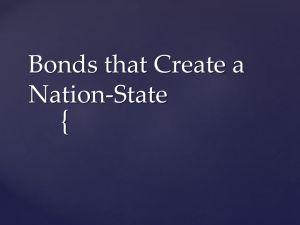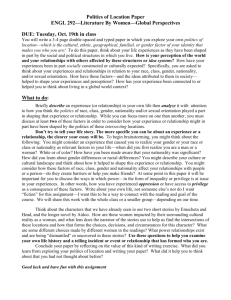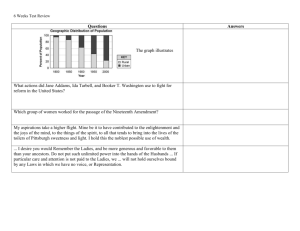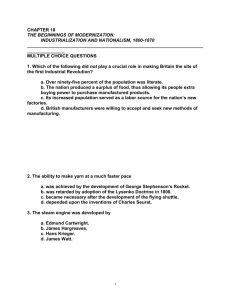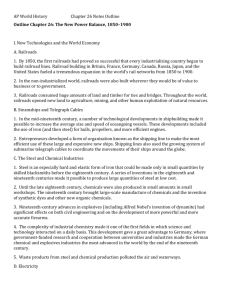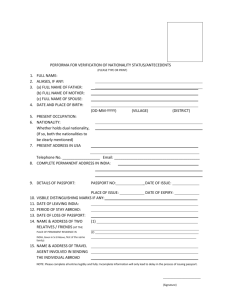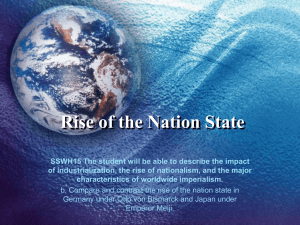by H. G. Wells
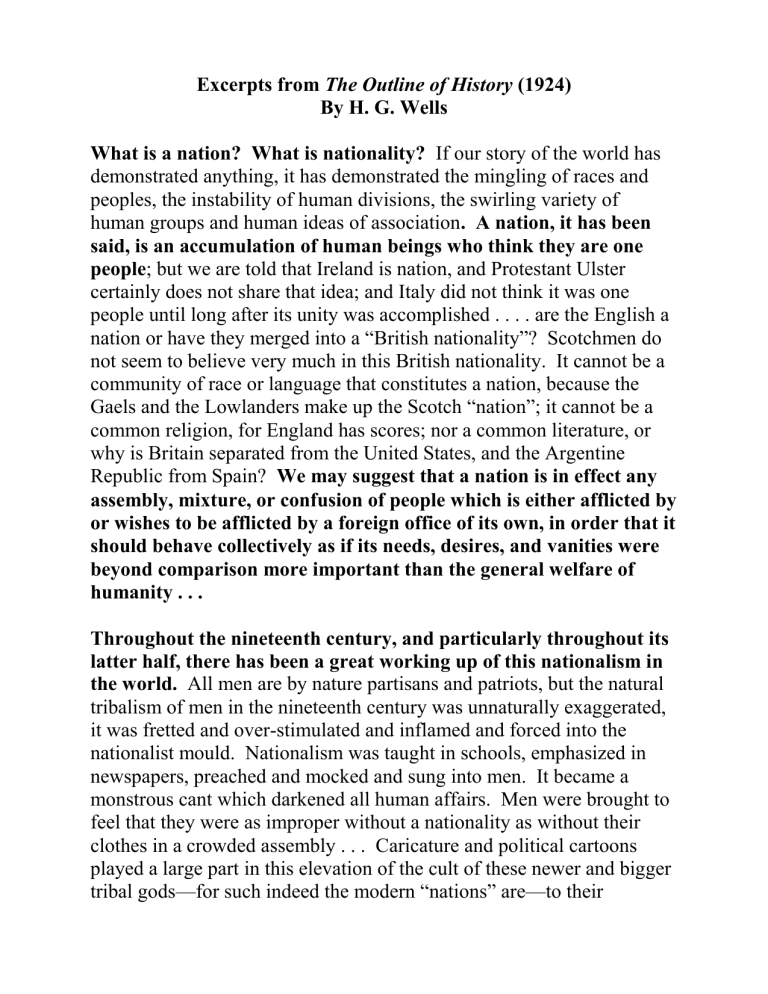
Excerpts from The Outline of History (1924)
By H. G. Wells
What is a nation? What is nationality?
If our story of the world has demonstrated anything, it has demonstrated the mingling of races and peoples, the instability of human divisions, the swirling variety of human groups and human ideas of association . A nation, it has been said, is an accumulation of human beings who think they are one people ; but we are told that Ireland is nation, and Protestant Ulster certainly does not share that idea; and Italy did not think it was one people until long after its unity was accomplished . . . . are the English a nation or have they merged into a “British nationality”? Scotchmen do not seem to believe very much in this British nationality. It cannot be a community of race or language that constitutes a nation, because the
Gaels and the Lowlanders make up the Scotch “nation”; it cannot be a common religion, for England has scores; nor a common literature, or why is Britain separated from the United States, and the Argentine
Republic from Spain? We may suggest that a nation is in effect any assembly, mixture, or confusion of people which is either afflicted by or wishes to be afflicted by a foreign office of its own, in order that it should behave collectively as if its needs, desires, and vanities were beyond comparison more important than the general welfare of humanity . . .
Throughout the nineteenth century, and particularly throughout its latter half, there has been a great working up of this nationalism in the world.
All men are by nature partisans and patriots, but the natural tribalism of men in the nineteenth century was unnaturally exaggerated, it was fretted and over-stimulated and inflamed and forced into the nationalist mould. Nationalism was taught in schools, emphasized in newspapers, preached and mocked and sung into men. It became a monstrous cant which darkened all human affairs. Men were brought to feel that they were as improper without a nationality as without their clothes in a crowded assembly . . . Caricature and political cartoons played a large part in this elevation of the cult of these newer and bigger tribal gods—for such indeed the modern “nations” are—to their
ascendancy over the imagination of the nineteenth century. If one turns over the pages of Punch . . . one finds the figures of Britannia, Hibernia,
France, and Germania embracing, disputing, reproving, rejoicing, grieving . . .
The essential idea of nineteenth century nationalism was the
“legitimate claim” of every nation to complete sovereignty, the claim of every nation to manage all its affairs within its own territory, regardless of any other nation.
The flaw in this idea is that the affairs and interests of every modern community extend to the uttermost parts of the earth . . . A world of independent sovereign nations means, therefore, a world of perpetual injuries, a world of states constantly preparing for or waging war. But concurrently and discordantly with the preaching of this nationalism there was, among the stronger nationalities, a vigorous propagation of another set of ideas, the ideas of imperialism, in which a powerful and advanced nation was conceded the right to dominate a group of other less advanced nations or less politically developed nations or peoples whose nationality was still undeveloped, who were expected by the dominating nation to be grateful for its protection and dominance . . .
These two ideas of nationality and, as the crown of national success,
“empire,” ruled European political thought, ruled indeed the political thought of the world, throughout the latter half of the nineteenth century, and ruled it to the practical exclusion of any wider conception of the common human welfare. They were plausible and dangerously unsound working ideas. They represented nothing fundamental and inalterable in human nature . . . . [vol. 4, pp. 1116-1118]
1) What is nationalism according to H. G. Wells? Compare his definition with that in [M].
2) Does he believe nationalism is part of human nature? In your own words, explain Wells’s position.
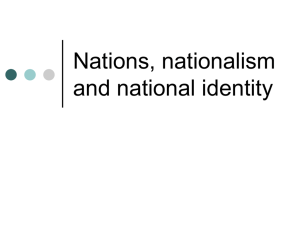
![“The Progress of invention is really a threat [to monarchy]. Whenever](http://s2.studylib.net/store/data/005328855_1-dcf2226918c1b7efad661cb19485529d-300x300.png)


